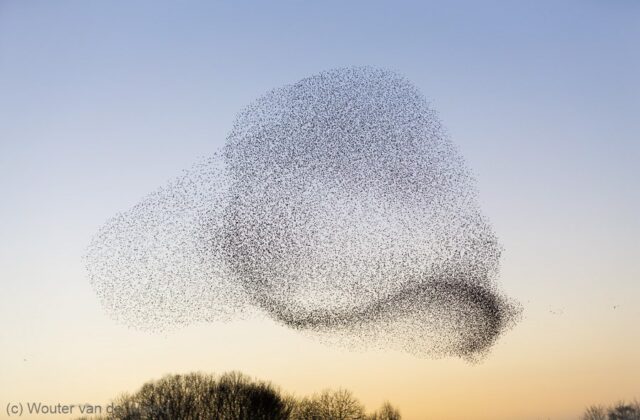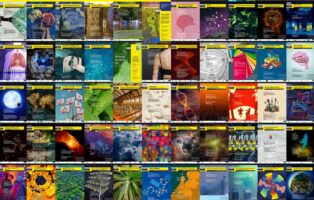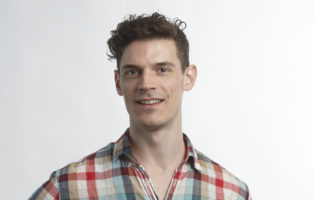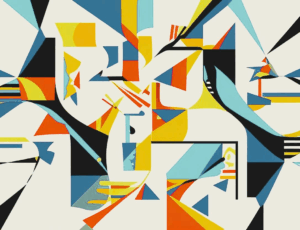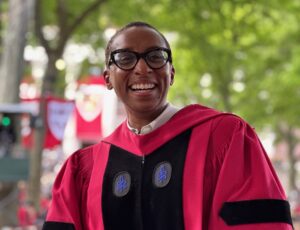Over het programma
*English below*
In pandemische tijden blijkt de lijn tussen gezond en risicovol gedrag op z’n zachtst gezegd ‘complex’. Wat we als risico bestempelen verschilt per persoon en wordt sterk beïnvloed door onze naasten. Zelf als we beter weten, zijn veel mensen geneigd het risico van ziekte of verspreiding te nemen.
In hun pogingen het virus een halt toe te roepen, worstelen overheden met dit gedrag. In plaats van menselijk gedrag mee te wegen in beperkingen, veronderstelt het overheidsbeleid ideale, rationele burgers: mensen die altijd afstand houden, graag thuiswerken en gewillig een mondkapje dragen. De realiteit vertelt echter een ander verhaal: irrationeel gedrag voert vaak de boventoon.
Samen met NIAS fellow en epidemioloog Luc Coffeng, gedragswetenschapper Will Tiemeijer en antropoloog Ginny Mooy onderzoeken we de wisselwerking tussen infectieziekten en menselijk gedrag. Welk menselijk gedrag leggen langdurige effecten van pandemieën bloot en wat vertelt ons dit over onze maatschappij? Waarom is het zo lastig de nieuwe realiteit aan te kaarten en te accepteren? En hoe kunnen wiskundige modellen ons helpen deze beter begrijpen?
About the programme
What type of human behaviour do infectious diseases expose? What do these insights tell us about our society? Together with NIAS Fellow and epidemiologist Luc Coffeng, writer and anthropologist Ginny Mooy, and behavioural scientist Will Tiemeijer this programme aims to unravel the interplay between infectious diseases and health related behaviour and beliefs. Why is it so hard for us to accept and address the reality that infectious diseases impose on us?
It is safe to say that what people perceive as healthy behaviour in the context of infectious diseases is rather complex: risk assessment varies per person and is heavily influenced by friends and family. Even though we know better, many of us indulge in risky behaviour; obviously, going to crowded parties is more satisfying than staying at home.
In the attempt to prevent the virus from spreading, governments struggle with this type of behaviour. Yet, they tend to overlook their own premises; policy and restrictions often presuppose ideal, rational citizens. People who keep physical distance at all times, do not mind working from home, and wear their mouth caps willingly. However, reality tells another story: as it turns out irrationality often rules. Why is it so hard for us to accept and address the reality that infectious diseases impose on us? And how can mathematical modelling help us understand and deal with this?
About the speakers
Luc Coffeng is Assistant Professor in the Department of Public Health at Erasmus MC, University Medical Center in Rotterdam. Coffeng is trained as a medical doctor and epidemiologist. Coffeng is this year’s Distinguished Lorentz Fellow at NIAS where he aims to unravel how human behavior influences the spread of infectious diseases and the other way around. Coffeng is currently active in the Science vs. Corona Collective, a Dutch collective of scientists from both exact and social sciences, whose interactive online app for different exit-strategies of the Covid-19 pandemic received wide-spread attention.
Ginny Mooy is a cultural anthropologist and sociologist of non-western societies. During the corona pandemic she has been a member of the critical Corona Red Team, monitoring national response, the dynamics between politics and behavior. Her independent research focuses on political and behavioral patterns influencing the pandemic in The Netherlands and Sierra Leone.
Will Tiemeijer is Professor of Sociology at Erasmus University Rotterdam. His research interests center on the interconnections between behavioral science, politics and government. Tiemeijer will be a discussant in this talk.
Jan Willem Duyvendak (moderator) is Director of NIAS and Distinguished Research Professor of Sociology, University of Amsterdam.
Programma
17.00h Welcome and opening by Jan Willem Duyvendak (moderator)
17.05 – 17.20 Presentatie by Luc Coffeng, Distinguished Lorentz Fellow
17.20 – 17.40 Responses by discussants Ginny Mooy and Will Tiemeijer
17.40 – 18.15 Paneldiscussion
About SPUI25
SPUI25 is an academic-cultural centre located on Spui, Amsterdam’s literary square. As a vibrant forum SPUI25 connects the academic world with the cultural sector in the broadest sense, as its events oscillate between science and imagination, fact and fiction. For more information about their programmes, see the SPUI25 website.
Photo: Wouter van de Weerd
About the DLF
The Distinguished Lorentz Fellowship is awarded annually to a leading scientist working on research that brings together perspectives from the humanities, social sciences, natural sciences and technological sciences. It was set up by the Netherlands Institute for Advanced Study and Lorentz Center (Leiden). The Fellowship is part of the NIAS-Lorentz program, promoting cutting-edge interdisciplinary research.
